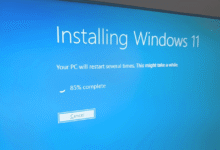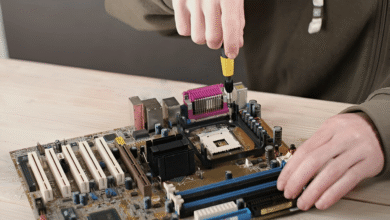Windows 12: Features, Rumors, and Release Timeline
Windows 12 release date, features & rumors explored. Discover Microsoft's next-gen OS with AI enhancements, UI changes & expected launch.

The tech industry is eagerly anticipating Windows 12, Microsoft’s next-generation operating system expected to succeed Windows 11. With advancements in AI, cloud computing, and user experience, Windows 12 could redefine how we interact with PCs. While Microsoft has yet to confirm an official launch date, leaks and insider reports suggest a potential 2024 or 2025 release. This article dives deep into the rumored features, possible release timeline, and how Windows 12 might shape the future of computing.
The tech world is abuzz with speculation about Windows 12, Microsoft’s next major operating system (OS) release. As the successor to Windows 11, Windows 12 is expected to bring groundbreaking AI enhancements, a revamped user interface, and deeper cloud integration. While Microsoft has yet to confirm an official release date, leaks and industry insiders suggest a potential 2024 or 2025 launch. This article explores the rumored features, possible release timeline, and how Windows 12 could redefine personal computing.
Windows 12 Features, Rumors, and Release Timeline
The Evolution of Windows and the Road to Windows 12
Microsoft’s Windows operating system has evolved dramatically over the years, from the user-friendly Windows XP to the sleek, modern Windows 11. Each iteration has introduced significant improvements in performance, security, and design. With, Microsoft is expected to push the boundaries even further, integrating cutting-edge AI, refining the user interface, and optimizing the OS for next-gen hardware.
The Most Exciting aspects of Windows 12
The shift toward AI-driven computing is one of the most exciting aspects of Windows 12. Microsoft has been heavily investing in AI, as seen with its partnership with OpenAI and the integration of Copilot across its ecosystem. Windows 12 is rumored to take this a step further with features like AI-powered task automation, real-time language translation, and intelligent system optimizations. These advancements could make Windows the most intuitive and efficient Windows version yet.
AI-Powered Enhancements
Artificial intelligence is expected to be the cornerstone of Windows 12. Microsoft may introduce an advanced AI assistant that surpasses Cortana, offering predictive suggestions, automated workflows, and context-aware computing. For instance, the OS could learn user habits and optimize system performance accordingly, reducing manual adjustments. Additionally, AI-driven security features, such as real-time threat detection and automated vulnerability patching, could make Windows one of the most secure Windows releases.
Redesigned User Interface
Early concept images and leaks suggest that Windows 12 will feature a refreshed UI with a more modern, minimalist design. Rumors point to a floating taskbar, dynamic wallpapers, and improved window management for multitasking. Microsoft might also introduce customizable widgets and an enhanced Start Menu, giving users more control over their desktop experience. The overall goal appears to be a cleaner, more intuitive interface that adapts to user preferences.
Enhanced Gaming Performance
Gaming has always been a priority for Windows, and Windows 12 is expected to take it further. With potential DirectX 13 integration, better ray tracing support, and optimizations for cloud gaming via Xbox Game Pass, Microsoft aims to solidify Windows as the top platform for gamers. Additionally, AI-powered upscaling (similar to NVIDIA DLSS or AMD FSR) could be natively supported, improving performance on mid-range hardware.
Rumored Features of Windows 12
Microsoft’s Windows operating system has undergone significant transformations over the decades, from the iconic Windows XP to the modern Windows 11. Each iteration has introduced new functionalities, design changes, and performance improvements. With Windows 12, Microsoft is expected to push boundaries further by integrating advanced AI, refining the user experience, and optimizing the OS for next-generation hardware.
Improved Cloud and Hybrid Work Integration
As remote and hybrid work becomes the norm, Windows is likely to enhance cloud integration. Features like seamless file syncing across devices, offline-to-online transition improvements, and better Microsoft Teams integration could make it a powerhouse for professionals. There are also rumors of a “Windows 365 Lite” mode, allowing users to stream a lightweight version of Windows from the cloud.
Stricter Hardware Requirements
Just as Windows 11 required TPM 2.0 and newer CPUs, Windows 12 might demand even more advanced hardware. Neural Processing Units (NPUs) could become essential for AI features, meaning older PCs may not support the full experience. Microsoft might also push for more devices to ship with Pluton security chips, enhancing protection against firmware attacks.
Expected Features of Windows 12
One of the most talked-about aspects of Windows is its potential AI-driven capabilities. Microsoft has been integrating AI across its products, and Windows 12 could take this further with an AI assistant that goes beyond Cortana. Imagine an OS that predicts user behavior, automates repetitive tasks, and offers personalized recommendations based on workflow patterns.
Potential Release Timeline
While Microsoft has not confirmed a release date, industry analysts predict a late 2024 or early 2025 launch. Some speculate that Microsoft will follow a three-year cycle, meaning Windows 12 would arrive in late 2024, three years after Windows 11. However, others believe Microsoft could delay it to mid-2025 to refine AI capabilities further. Microsoft may also adopt a more modular update approach.
Competition and Market Impact
With Apple’s macOS and Google’s ChromeOS gaining traction, Microsoft must ensure Windows 12 stands out. The emphasis on AI could give it an edge, especially in productivity and enterprise environments. If executed well, Windows could solidify Microsoft’s dominance in the OS market while attracting new users with its innovative features. Microsoft could also introduce a subscription model for advanced features, though this remains unconfirmed.
How Windows 12 Could Impact the Market
With Apple’s macOS and Google’s ChromeOS gaining ground, Microsoft needs Windows to be a game-changer. If the AI features deliver as promised, Windows could maintain its dominance in productivity and enterprise environments. However, if hardware requirements are too strict, it could alienate users with older machines, similar to the backlash Windows 11 faced. Users with older systems might need upgrades, similar to the transition from Windows 10 to Windows 11.
Read More: How to Use ChatGPT for Marketing Automation in 2025
Conclusion
Windows 12 has the potential to be one of Microsoft’s most innovative operating systems yet. With AI at its core, a redesigned UI, and enhanced gaming and productivity features, it could redefine the Windows experience. While official details remain scarce, the rumors paint an exciting picture of what’s to come. Whether it’s smarter automation, better gaming support, or improved security, Windows 12 has the potential to redefine how we interact with PCs.
As we await Microsoft’s official announcement, one thing is certain: Windows 12 will be a major step forward in personal computing. Whether it lives up to the hype will depend on how well Microsoft executes its vision. If successful, it could set a new standard for operating systems in the AI era. If the speculated features come to fruition, it may well be the most advanced Windows version yet, setting a benchmark for future operating systems.
FAQs
When will Windows 12 be released?
While Microsoft hasn’t confirmed a date, most rumors suggest a late 2024 or early 2025 launch.
Will Windows 12 be a free upgrade?
It’s likely that Windows 11 users will get a free upgrade, but some premium AI features might require a subscription.
What are the expected hardware requirements?
Windows 12 may need newer CPUs with NPUs for AI tasks, possibly leaving older PCs unsupported. This strategy could help reduce bugs and ensure smoother transitions for enterprise users.
How will Windows 12 improve gaming?
Expect better DirectX 13 support, AI upscaling, and deeper Xbox Cloud Gaming integration.
Will Windows 12 replace Windows 11 completely?
Yes, but Windows 11 will likely receive security updates for years, similar to Windows 10 after Windows 11’s release.











